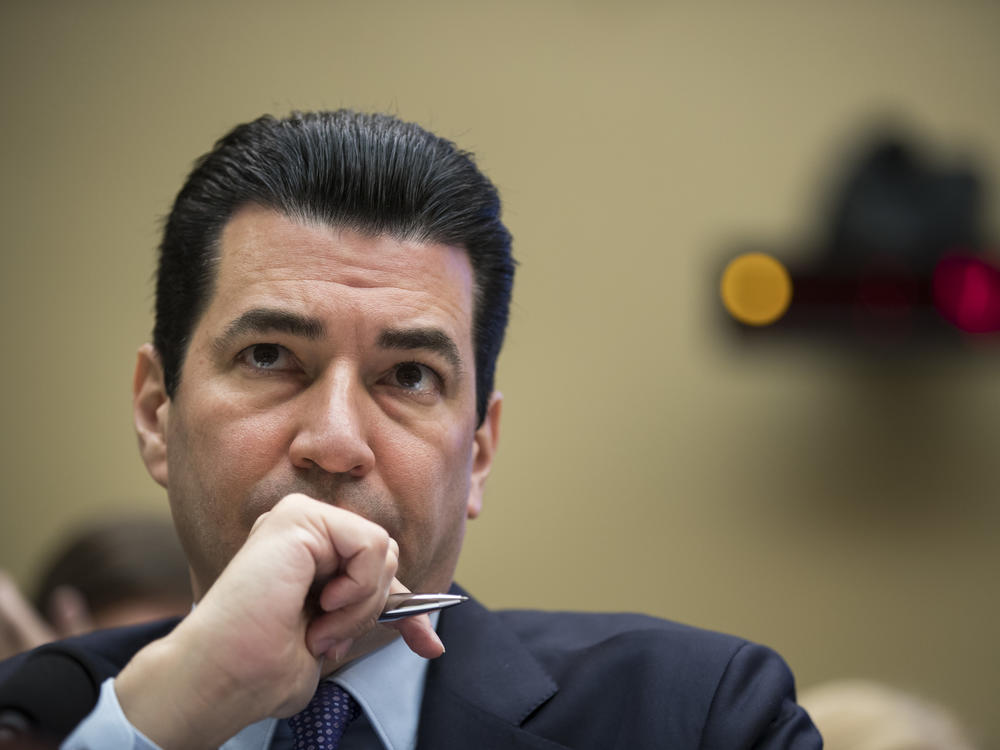Section Branding
Header Content
Ex-FDA Chief Sees 'Struggle' To Vaccinate More Than Half U.S. Population
Primary Content
One in 4 Americans would refuse a coronavirus vaccine if offered, a recent NPR/Marist poll found. Another 5% are "undecided" about whether they would get the shot. And some researchers are growing worried that this reluctance will be enough to prevent the nation from reaching what's known as herd immunity.
A former head of the Food and Drug Administration also has doubts about reaching herd immunity, the point at which the virus can no longer spread easily through the population.
More than 123 million people, or about 37% of the U.S. population, have received at least one dose of a COVID-19 vaccine and Dr. Scott Gottlieb, who was FDA commissioner from 2017 to 2019, says the nation is reaching a point where supply will outstrip demand. Gottlieb is on the board of directors of Pfizer, which makes one of the coronavirus vaccines.
"I think that there's probably 150 million Americans who are eager to get vaccinated. And as we expand into the younger age cohorts and a new eligible population ... you're not going to see the demand be as brisk," Gottlieb says in an interview with NPR's Morning Edition.
"I think we get to 150 million vaccines. I think we struggle to get to 160 million," he says, which is roughly half the U.S. population. "Beyond that, I think it's going to be difficult. I'm not sure that you have the demand there."
But it's not as bad as that sounds.
"I don't know that we ever get to herd immunity," Gottlieb says. "But I think the combination of vaccinating that many people and having a lot of immunity in the population from prior infections, [is] enough that the level of spread of this virus is going to be substantially reduced."
On Tuesday, the FDA and Centers for Disease Control and Prevention recommended a pause in the use of the Johnson & Johnson COVID-19 vaccine, pending a review of reports of very rare, potentially dangerous blood clots.
Blood clots were found in six recipients, one of whom died. Those affected, all of whom were women, were among about 7 million people in the U.S. who received the J&J shots.
Gottlieb said he expects the pause to be short.
"I think this is probably a temporary pause where the agency is going to evaluate the information it has, see if there is more cases out there to be reported into the agency, perhaps issue some guidance around the use of the vaccine and what doctors should be alert for and then allow the vaccine to continue to be distributed," he says.
He adds, "I think it's more likely than not that there's going to be a resumption in the use of the vaccine for some portion of the population. That should be reassuring to the public."
Jeevika Verma and Arezou Rezvani produced and edited this interview for broadcast.
Copyright 2021 NPR. To see more, visit https://www.npr.org.

